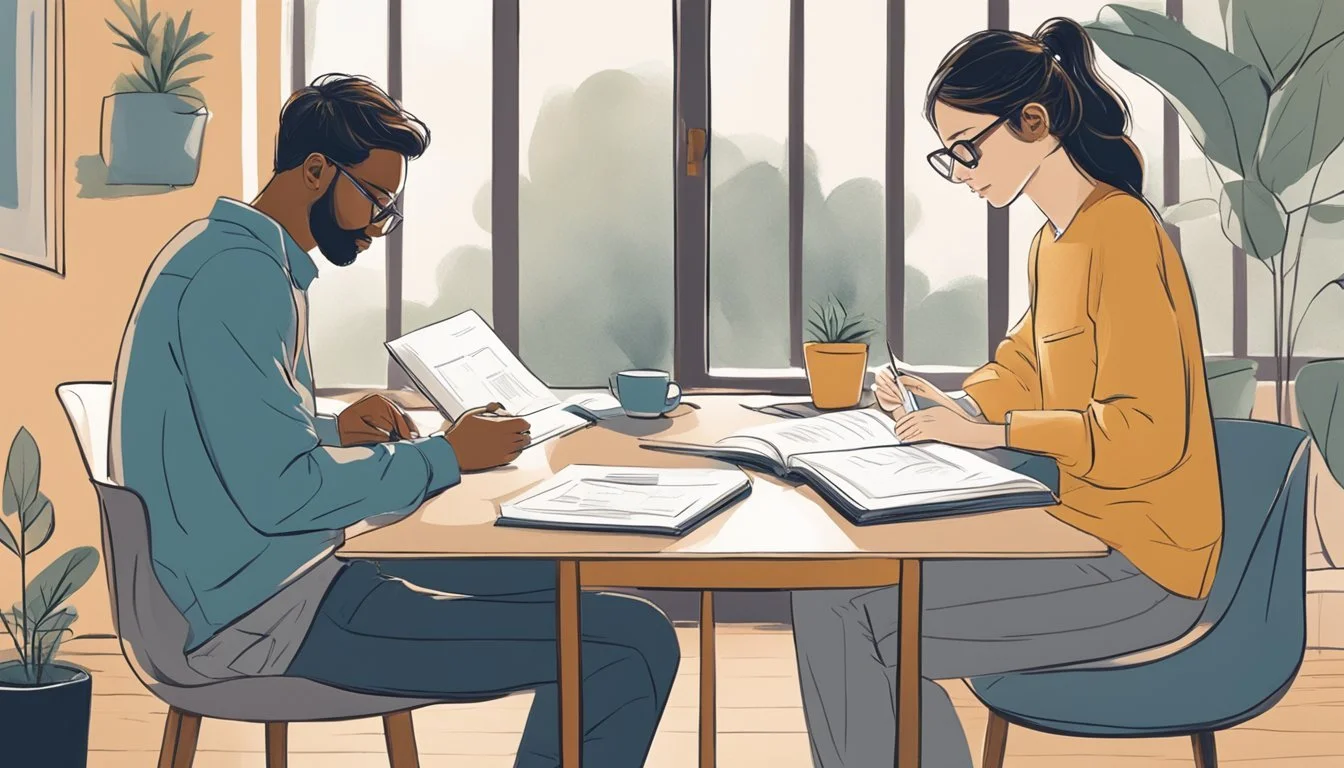6 Reasons Why Mutual Respect for Alone Time is Important for Healthy Relationships
In today's fast-paced world, maintaining a healthy relationship often hinges on understanding the importance of mutual respect for alone time. This respect not only fosters personal growth but also strengthens the bond between partners. Relationships thrive when both individuals acknowledge and honor each other's need for solitude.
Mutual respect for personal space is crucial for sustaining a balanced and harmonious relationship. Recognizing and accommodating these needs can lead to greater individual contentment and a more robust connection. By exploring the significance of alone time, couples can build a resilient and supportive partnership.
1) Enhances Emotional Balance
Spending time alone helps individuals process their emotions without external distractions. This solitary time allows them to reflect on their feelings and understand their emotional responses better.
Alone time provides a break from social interactions, which can sometimes be stressful or overwhelming. This break helps to reduce accumulated stress and promotes a sense of calm.
Engaging in activities that one enjoys alone can elevate mood and provide a sense of accomplishment. Hobbies, meditation, or simply taking a walk can recharge emotional batteries.
Solitude gives people the freedom to think deeply without interruption. This can lead to better emotional clarity and improved handling of complex emotions. More insights about solitude's benefits can be found here.
Balancing social interactions with alone time ensures that individuals do not become emotionally drained. It allows for a more stable emotional state, making individuals better equipped to handle daily challenges.
Understanding the difference between loneliness and productive alone time is crucial. While loneliness can be detrimental, purposeful solitude can serve as a powerful tool for emotional well-being. Discover more about the benefits here.
2) Promotes Personal Growth
Spending time alone can significantly contribute to personal growth. During solitude, individuals engage in self-reflection, allowing them to understand their thoughts and emotions better. This introspective process leads to increased self-awareness and a deeper comprehension of personal values and beliefs.
Solitude encourages self-discovery by providing the quiet necessary for introspection. Without external distractions, one can explore strengths, weaknesses, passions, and fears. This self-exploration is crucial for identifying personal goals and aspirations.
Alone time fosters creativity and innovation. When people are by themselves, they have the mental space to brainstorm new ideas and solutions. This creative freedom is often hindered by the constant interaction and feedback from others.
Individuals who spend time alone are more likely to develop self-acceptance and self-esteem. By being comfortable in their own company, they cultivate a sense of inner peace and confidence. This self-acceptance forms the foundation for personal growth and resilience.
Also, solitude helps in setting boundaries and recognizing the importance of self-care. People learn to prioritize their needs and well-being, which is essential for maintaining a balanced and fulfilling life.
Mutual respect for alone time can enhance relationships as well. Allowing each other space for personal growth ultimately results in a more harmonious and understanding partnership. The benefits of alone time are clear and profound, making it an essential practice for personal development.
3) Boosts Relationship Longevity
Mutual respect for alone time can significantly boost the longevity of a relationship. When both partners allocate time for their individual interests and personal growth, they prevent enmeshment, which can lead to losing one's identity.
Having personal space helps reduce the potential for resentment. Partners who respect each other’s need for alone time are often better equipped to handle stress and external pressures.
Allowing time apart can also reinforce commitment. Partners often return to the relationship with renewed energy and appreciation for each other, which enhances emotional connection and overall satisfaction.
Building a support network of friends and family, while also maintaining alone time, can enhance relationship longevity by reducing pressure on the relationship to fulfill all emotional needs. External bonds provide additional sources of love, advice, and fun.
Healthy boundaries around alone time ensure that both individuals can thrive personally, which translates into a stronger, more resilient partnership. This balanced approach to togetherness and independence fosters enduring emotional bonds.
When partners feel respected and free to pursue their interests, they bring more to the relationship. This mutual growth supports a deeper and more lasting connection. The balance of togetherness and individuality can help relationships weather the challenges and changes that come with time.
4) Encourages Healthy Boundaries
Mutual respect for alone time plays a significant role in encouraging healthy boundaries within relationships. When individuals recognize and honor each other’s need for solitude, they create a space where personal limits are acknowledged and respected.
Setting boundaries allows partners to maintain their individuality while still being part of a relationship. This balance ensures that both parties feel respected and valued. It enables them to take care of their personal needs without feeling guilty.
Healthy boundaries foster trust and communication. Partners who set clear limits are more likely to express their feelings and needs openly. This transparency can lead to stronger, more resilient connections. Mutual respect for alone time is fundamental to this process.
When boundaries are established, conflicts can be managed more effectively. Partners know what to expect from each other, reducing uncertainty and misunderstandings. This clarity helps to prevent resentment and fosters a more harmonious relationship environment.
Boundaries are essential for emotional, physical, and mental well-being. They provide a roadmap for navigating the complexities of relationships, ensuring that both partners' needs are met while maintaining their autonomy. This healthy dynamic strengthens the overall relationship, promoting trust and intimacy.
5) Fosters Independence
Respecting alone time in a relationship fosters independence for both partners. This independence allows each individual to explore personal interests and hobbies without feeling constrained.
By having their own space, each person can develop a stronger sense of self. This self-growth is crucial for long-term happiness and self-esteem, which benefits the relationship.
Additionally, independence enhances problem-solving skills. Time alone encourages reflection and the development of unique solutions to personal and shared challenges.
Granting each other alone time supports emotional well-being. It provides a necessary break from shared responsibilities, reducing stress and potential conflicts.
Lastly, fostering independence can lead to a deeper appreciation for time spent together. Each partner brings new experiences and perspectives back to the relationship, enriching their connection and shared life.
6) Reduces Stress
Spending time alone can significantly reduce stress levels. When individuals take time for themselves, they can disconnect from the pressures and demands of social interactions.
Being alone provides a break from the need to please others or to conform to social expectations. This alone time allows for mental relaxation and the opportunity to focus on one’s own needs and thoughts.
Studies, such as the 2017 "Solitude Project," found that those who actively choose to have alone time experience stress relief and relaxation. Being alone removes external stressors, offering a peaceful environment.
This reduction in stress can improve overall mental health. Without the constant interaction, there's more space for introspection and self-care activities.
In a world that demands constant interaction and availability, carving out alone time is a vital practice. It offers a buffer against the stress that daily life and social responsibilities can bring.
The Psychological Benefits of Alone Time
Spending time alone can positively impact mental health and self-awareness. It allows individuals to recharge, reflect on their experiences, and understand themselves better.
Stress Reduction
Alone time helps reduce stress by providing a break from daily demands and social pressures. Being around people often requires managing relationships and meeting expectations, which can be exhausting.
In solitude, individuals can focus on personal relaxation techniques such as deep breathing, meditation, or hobbies they enjoy. This helps lower cortisol levels and promotes a sense of calm.
Reducing distractions also allows the mind to process emotions and events more effectively. It is a period to mentally unwind, leading to decreased anxiety and enhanced emotional resilience.
Improved Self-Awareness
Spending time alone contributes to self-awareness by providing opportunities for introspection. Without external influences, individuals can explore their thoughts, feelings, and behaviors, gaining a clearer understanding of themselves.
This reflection can lead to personal growth, as it helps identify strengths, weaknesses, and areas for improvement. It encourages setting personal goals and developing a deeper comprehension of one's values and beliefs.
As individuals understand themselves better, they become more confident and make decisions that align with their true selves, enhancing overall well-being and life satisfaction.
Strengthening Relationship Dynamics
Mutual respect for alone time plays a crucial role in strengthening relationship dynamics. By fostering mutual trust and encouraging personal growth, partners can enhance their connection and improve overall relationship quality.
Fostering Mutual Trust
Respecting each other's need for alone time helps foster mutual trust. When partners grant one another the space to recharge independently, they signal confidence in their partner's commitment. This promotes a sense of security and strengthens the emotional bond.
Trust develops when both individuals feel valued and acknowledged. Ensuring personal boundaries are respected allows partners to be genuine and honest. By providing the freedom to engage in individual interests, the relationship becomes a sanctuary where authenticity thrives.
Additionally, trust is built through consistent actions that prioritize understanding and respect. When partners honor each other's alone time, it demonstrates reliability and an understanding of each other's needs. This authenticity contributes greatly to the strength of the relationship.
Encouraging Personal Growth
Alone time is essential for personal growth. When partners support each other's individual pursuits, they foster an environment of continuous self-improvement. This not only benefits the individual but also enriches the relationship.
Encouraging personal interests and hobbies allows each partner to remain a whole, fulfilled person. Engaging in activities independently provides valuable experiences and perspectives that can be shared, enhancing the relationship.
Moreover, personal growth leads to greater self-awareness and emotional intelligence. These qualities are essential for managing conflicts and maintaining harmony. By cultivating their own interests, partners bring more to the table, which can lead to deeper, more meaningful interactions.
Supporting each other's alone time and personal development ensures that both individuals continue to evolve, which keeps the relationship dynamic and resilient.








